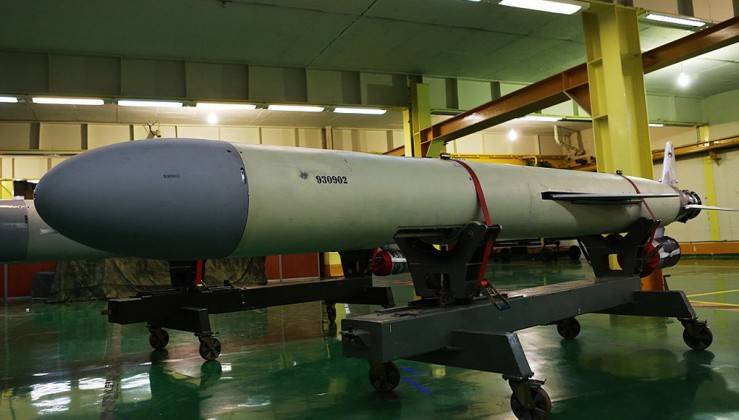World largest Oil Refinery in Saudi Arabia hit with Iranian cruise missiles?
Shares

RIYADH - The weapons used to strike Saudi oil facilities were Iranian-made, the Riyadh-led coalition said Monday, heightening fears of regional conflict after the US hinted at a military response to the assault.
The weekend strikes on Abqaiq –- the world's largest oil processing facility –- and the Khurais oil field in eastern Saudi Arabia have roiled global energy markets sending prices spiking Monday.
Yemen's Iran-aligned Huthi rebels claimed responsibility for the strikes but Washington has squarely blamed Iran, with President Donald Trump saying the US is "locked and loaded" to respond.
Saudi's energy infrastructure has been hit before, but this strike was of a different order, abruptly halting 5.7 million barrels per day (bpd) or about six percent of the world's oil supply.
The Saudi-led coalition, which is bogged down in a five-year war in neighbouring Yemen, reiterated the assessment that the Huthis were not behind it, pointing the finger at Iran for providing the weapons.
Russia urged "all countries to avoid hasty steps or conclusions that could exacerbate the situation" while the European Union stressed all sides should show "maximum restraint".
China also called on the US and Iran to "exercise restraint... in the absence of a conclusive investigation or verdict."
"All indications are that weapons used in both attacks came from Iran," coalition spokesman Turki al-Maliki told reporters in Riyadh, adding they were now probing "from where they were fired".
"This strike didn't come from Yemen territory as the Huthi militia are pretending," Maliki said, adding an investigation had been opened.
He labelled the Huthis "a tool in the hands of the Iranian Revolutionary Guards and the terrorist regime of Iran".
The rebels said they fired 10 drones at the Saudi infrastructure, but the New York Times reported that US officials had satellite images showing the attacks -- possibly with drones and cruise missiles -- had come from the north or northwest.
That indicated they were sourced in the northern Persian Gulf, Iran or Iraq, rather than Yemen.
- 'Unprecedented attack' -
The assault on the heart of Saudi Arabia's oil industry, which engulfed the facilities in flames, has been condemned by Washington as an "unprecedented attack on the world's energy supply".
Oil prices saw their biggest daily gain since the 1991 Gulf War on Monday after the attacks halved output in the world's top crude exporter, fuelling fresh geopolitical and growth fears.
Europe's benchmark Brent crude surged by 20 percent and US counterpart WTI by 15 percent as commodities trading got underway.
Both contracts later came off their peaks, but were still up more than 10 percent on the day by the mid-afternoon in Europe.
US Energy Secretary Rick Perry insisted world oil markets still had sizeable reserves saying the market has "a fairly substantial amount of oil out there available".
Saudi Energy Minister Prince Abdulaziz bin Salman on Sunday said the kingdom would use its vast inventories to partially compensate for the lost production, and the US also authorised the release of its reserves.
"Growing tensions in the Middle East are another headwind for the global economy in already uncertain times, and a full-blown conflict could trigger another leg in the global downturn," said Jennifer McKeown, head of Global Economics at Capital Economics.
With the Huthis threatening further attacks, analyst Oanda senior market analyst Craig Erlam noted Saturday's events had "highlighted the vulnerability of security at these facilities to drone attacks".
The kingdom also has a spare capacity of around two million bpd that it can draw on at times of crisis.
But a prolonged production delay could potentially see prices climb to "triple digits", warned Saudi economic consultant Sulaiman al-Assaf. -APP/AFP
